Student spends months getting covered in bird poop and vomit on uninhabited island — and can’t wait to go back
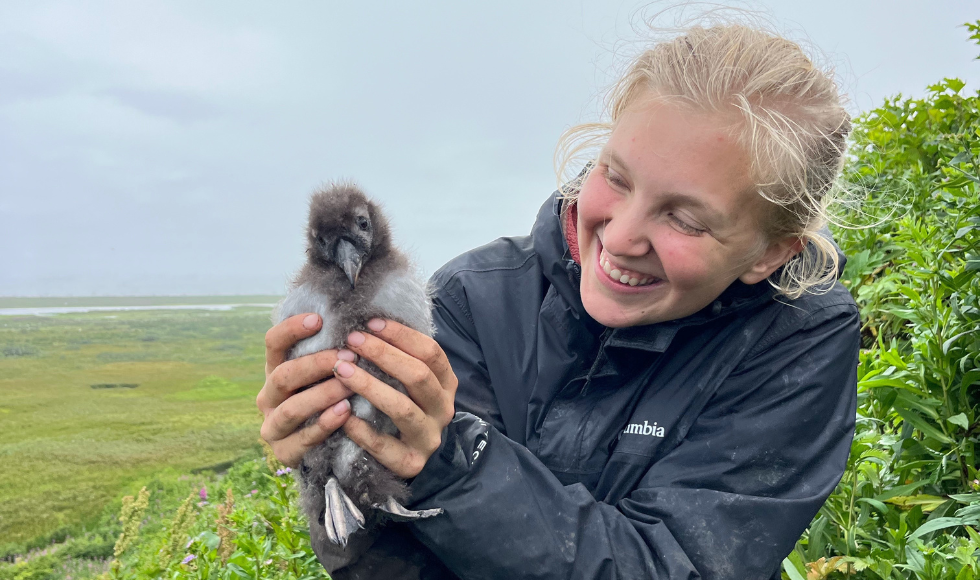
Flynn O’Dacre, who hopes to work as a wildlife conservationist, spent a summer research term as a seabird anesthesiologist in the Gulf of Alaska. (All photos courtesy Flynn O’Dacre)
Flynn O’Dacre spent four months getting splattered with guano and vomit from thousands of screaming birds, sticking her bare hands into half-thawed buckets of fish guts three times a day and sleeping in a tent on an uninhabited, treeless island with no running water, limited Wi-Fi and summer temperatures that rarely broke 10 degrees Celsius.
And she can’t wait to return to Middleton Island — this time as a graduate student and full-fledged member of biology professor Emily Choy’s research group.
It’ll put O’Dacre one step closer to launching her dream career as a wildlife conservationist.
She’ll once again be scrubbing in as seabird anesthesiologist, helping Choy painlessly implant miniature heart rate loggers into birds.
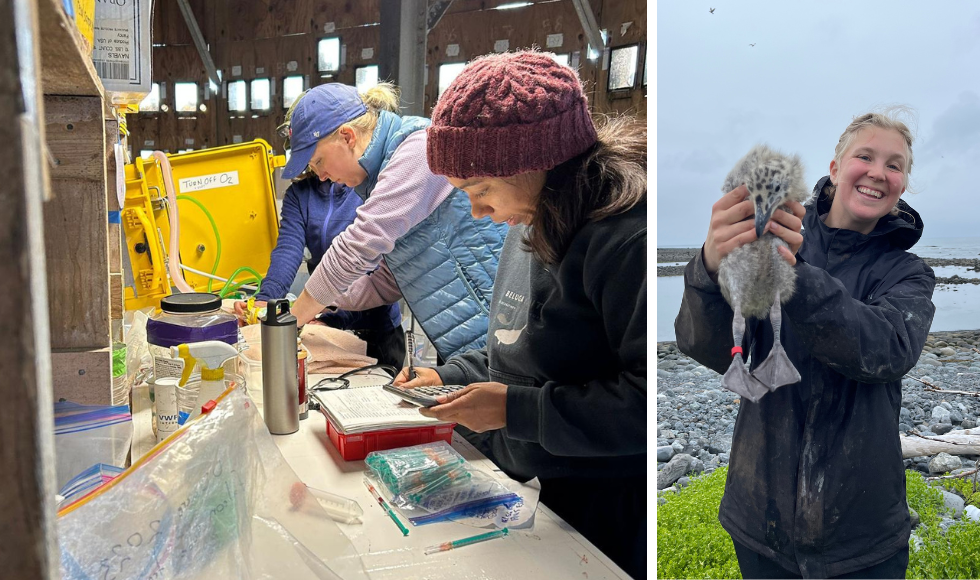
Monitoring heart rates of birds in the wild is a new field of research, thanks to recent advances in technology. The data generated by the miniaturized monitors supports conservation efforts by helping scientists better understand bird behaviour and the impacts of climate change.
Middleton Island is in the Gulf of Alaska, 112 kilometres from the mainland and a one-hour flight from Anchorage.
From 1958 until 1963, it was home to the Middleton Island Air Force Station. When the U.S. military moved out, the birds moved in and built their nests in the four decommissioned radar towers.
The abandoned barracks are still there but the roofs have collapsed, which is why researchers on the island pitch tents.
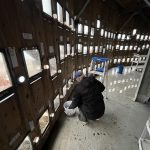
O’Dacre would climb up the inside the radar towers with her buckets of fish every day for 9 a.m., 1 p.m. and 6 p.m. supplementary feedings.
The first time up, she was grossed out. She pinched a fish out of the bucket by its tail.
By the end of the summer, she was plunging her hands into the buckets without reservation. If she was running late, the birds let her know they were waiting.
O’Dacre was tipped off to the summer research job during her third year in McMaster’s Arts & Science program.
Choy had pitched the job during a biology class.
O’Dacre wasn’t in the course but a friend was. It was a hard pass for the friend “but she told me about it, knowing it was something I’d be really interested in.” O’Dacre applied, not expecting to get an interview.
After all, mathematics had been her primary area of study. But while she has a head for numbers, her heart’s with the birds.
“I’ve always loved them. There are so very few places on Earth that don’t have birds. There are so many species, yet we still know so little about them.”
The American Goshawk’s her favourite bird. They’re hard to spot but O’Dacre’s second favourite – the Carolina wren – can be easily found around campus.
There’s no problem finding birds on Middleton Island — it’s getting away from them that’s the challenge.
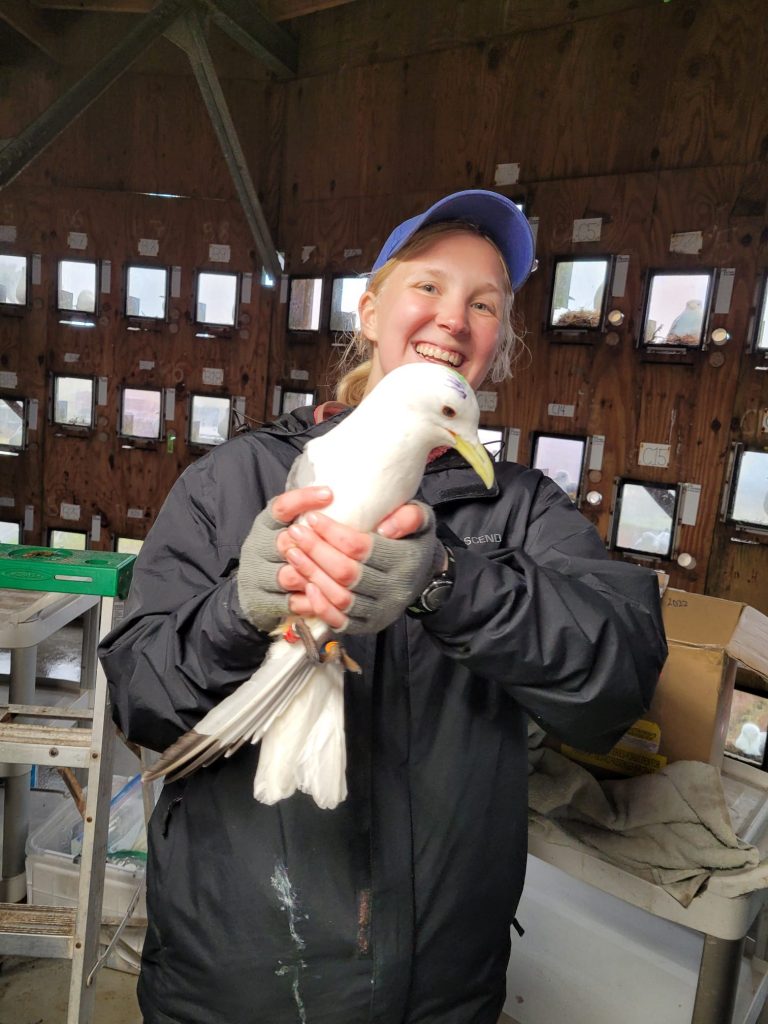
O’Dacre eventually got used to the noise and the smell from the thousands of birds that have laid claim to the 2,200-acre island.
When she called home on Father’s Day, her dad could hardly hear her.
“He asked me to go inside to get away from all the noise. By that point, I didn’t even notice the birds.”
Her parents were excited about her summer job. It took her grandmother a while to fully appreciate how far away the island was from Toronto.
“She’d bought tickets to the ballet for me and sister and thought I could fly home for a weekend.”
Leaving the tent without wearing a raincoat and rain pants was a rookie mistake.
“We were constantly getting pooped on.”
When birds vomited on her, O’Dacre had to scrape it off her coat and into a Ziploc bag to be analyzed by other researchers.
The number of international researchers on the island peaked at 20.
Every time researchers flew in during the summer, they brought along bags of groceries. They’d take turns cooking meals and scrubbing dishes with water hauled in to camp from a nearby stream.
To shower, water from the stream would be heated on the stove. “You never really got clean.”
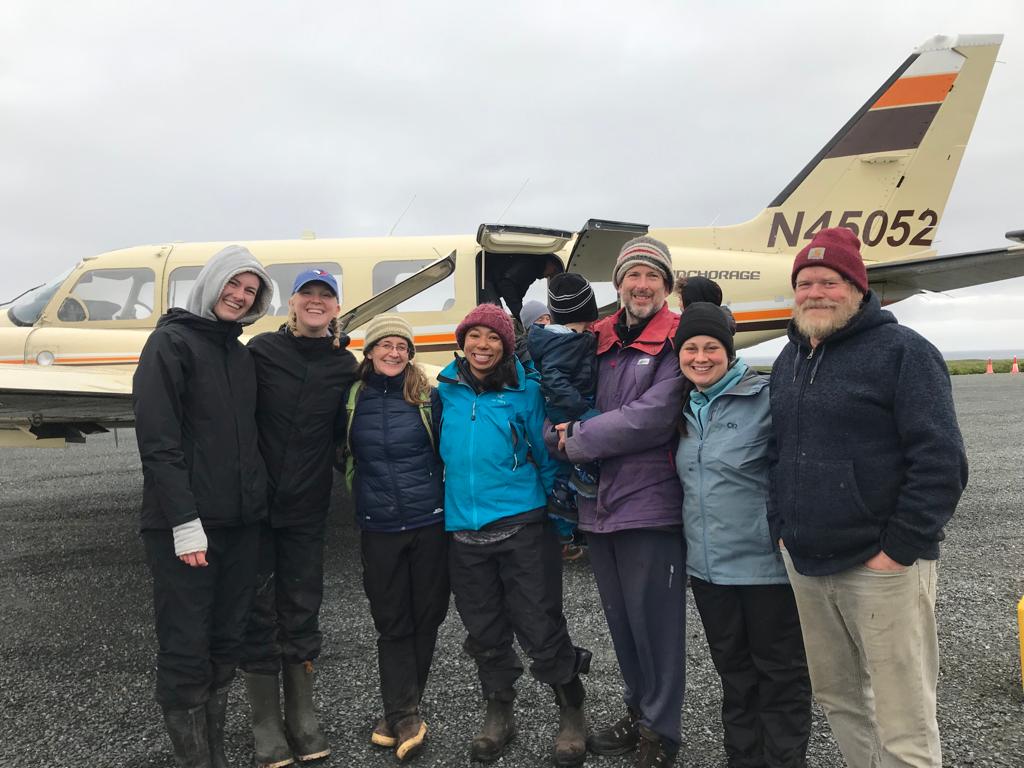
By the end of August, O’Dacre was one of a half-dozen researchers wrapping up their field work.
Fog as thick as pea soup delayed their flight back to Anchorage by a day. She still can’t find the words to describe the joy of having a hot shower after four months on the island.
Along with a love for numbers and birds, O’Dacre is a voracious reader which made the days go faster on Middleton Island. She jammed her backpack with 15 books — mostly Victorian novels — and a fully loaded Kobo.
With nothing else to do during her downtime, she finally got around to reading George Eliot’s Middlemarch, along with a doorstop of a book on dinosaurs.
All she had to do was look up from that book to see the last remaining dinosaurs flying overhead, impatiently waiting for O’Dacre to head up the radar tower with their fish gut buffet.


